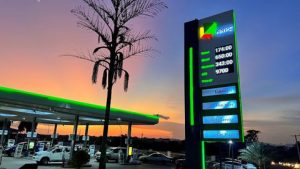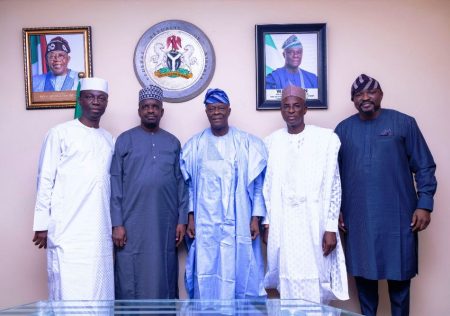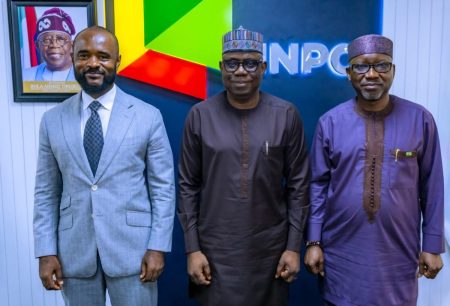
Oritsegbubemi Omatseyin
Lagos — The Nigerian National Petroleum Company Limited, NNPCL, is developing key strategic pathways to sustain and increase its aggressive gas development and gas transportation projects to achieve affordable and clean energy.
This, it said, was in line with the United Nations Sustainable Development Goal (SDG), Goal No. 7, as its strategic energy plan towards finding a balance for the energy trilemma. The drive is in line with the United Nations Sustainable Development Goal (SDG), Goal No. 7, well as part of the company’s strategic energy plan towards finding a balance for the energy trilemma.
The Group Chief Executive Officer, of Nigerian National Petroleum Company (NNPC) Limited, Mallam Mele Kyari, disclosed this while delivering a keynote address at the Nigeria Annual International Conference & Exhibition, NAICE, hosted by the Society of Petroleum Engineers, SPE, in Lagos.
Speaking on the theme of the event “Balancing Energy Accessibility, Affordability, and Sustainability: Strategic Options for Africa”, Kyari who was represented by the Company’s Upstream Executive Vice President, EVP, Adokiye Tombomieye said African countries were still grappling with strategies for balancing energy availability in line with the United Nations Sustainable Development Goals No 7 (Affordable and Clean Energy) and No 13 (climate actions).
He said: “Energy accessibility means ensuring all citizens can access reliable, modern energy, irrespective of their location or socio-economic status. Energy affordability entails ensuring energy and its infrastructure are priced so they can be obtained without financial strain by Africans, while Energy sustainability implies that our energy use does not harm the local environment or exhaust resources, affecting future generations.
“This is indeed a trilemma situation and the delicate balance between political will, technological innovation, effective market mechanisms, well-crafted policy interventions, and capacity building. It also demands a multi-stakeholder approach, one that involves government, the private sector, civil society, host community, and the public at large,” Kyari said.
He noted that the Nigerian energy industry has witnessed strategic transformation which has given birth to a viable industry legislation, the Petroleum Industry Act (PIA), and a long-term gas-centered energy transition plan.
Speaking further, Kyari said: On the policy front, we have also seen the emergence of the incorporation of our national oil company from NNPC to NNPC Limited. The PIA also provides for NNPC Ltd. to engage in the renewable energy business; and the Nigerian Climate Act for mainstreaming climate change actions to achieve low emissions, inclusive green growth, and sustainable economic development.
He noted that despite the strategic transformation witnessed in the past few years, Nigeria will not transition away from hydrocarbons, but would rather increase its footprint of alternative cleaner energy sources in the foreseeable future amid fossil fuel dominance.
Kyari said: “We use what we have to get to our desired destination. This is the reason that NNPC Limited has identified gas as a transition fuel, and we are expanding our gas development and gas infrastructure across the country to increase energy accessibility”.
“Today, Nigeria has about 209.5 trillion Cubic Feet of natural gas reserves with a potential upside of up to 600 TCF, and this is an enormous resource that would drive cleaner and affordable energy vision,” he revealed.
Speaking on other energy sources Kyari said alternative energy sources such as solar and wind are faced with technology limitations, hence are still not affordable and cannot meet the high energy demands of industries, cities, and remote environments.
He, therefore, urged all industry stakeholders and the SPE Nigeria Council to contribute to ensuring the provision of affordable, clean, and efficient energy options to our stakeholders comprising over 200 million Nigerians, under a just and equitable transition.
“This includes not only our efforts in harnessing the existing energy resources but also in innovative research, development, and adoption of new and emerging technologies in the energy sector,” he noted.
He said: “Our collective success will be defined by how we deliver an affordable wide range of energy sources sustainably. However, all of these cannot be achieved if we do not have the security of our operations hence we will continue to further deepen collaboration amongst all the relevant stakeholders, government security agencies, host communities, and others to enhance our energy security”.
According to Kyari, this will require the provision of adequate and timely investments to build resilient energy systems capable of delivering energy to support socio-economic development sustainably.
The Chief Executive Officer of the Nigerian Midstream and Downstream Petroleum Regulatory Authority, NMDPRA, Engr. Farouk Ahmed in His speech said Nigeria’s proven gas reserve has the potential to unlock economic development and GDP growth for the country.
He said the Authority is awakening the sector by addressing the trilemma of energy accessibility, affordability, and sustainability by unlocking the full potential of natural gas which is the cleanest fossil fuel.
He said: “Natural gas has been incorporated in several policy documents such as the National Development Plan, Nationally Determined Contributions, Energy Transition Plan, etc, all stressing the importance of natural gas in the decarbonisation journey.”



